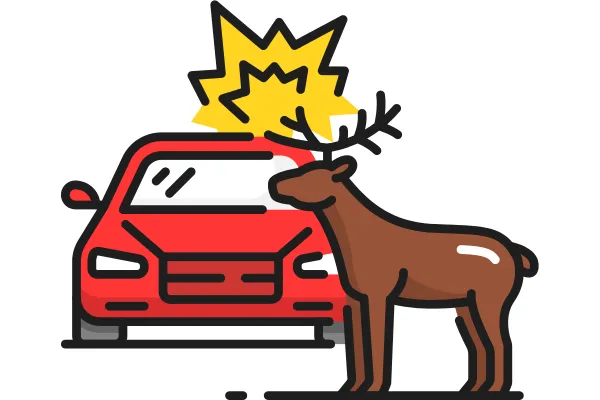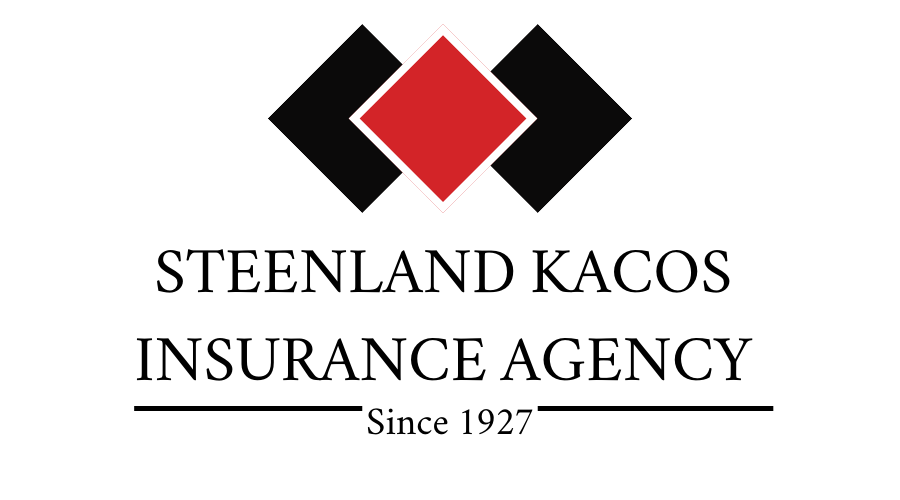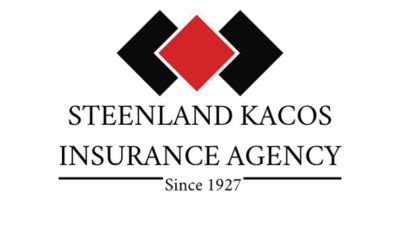Steenland Kacos Insurance Blog

What to do when you hit a deer
Deer Claims: What You Need To Know
As the weather gets colder in Michigan and the fields are cut down, it’s officially deer claim season in the insurance world. With deer searching for new homes and hunting season in full swing, these animals are on the move, increasing the chance of accidents. There are a few important things to keep in mind when it comes to deer claims and insurance.
Insurance carriers would rather you hit the deer than swerve into oncoming traffic, drive off the road, or end up in a ditch. To “incentivize” safer decisions, insurance companies classify deer accidents under comprehensive coverage rather than collision. This distinction benefits you because comprehensive claims usually have a lower deductible and don’t impact your claims record as heavily as regular collision claims.
So, what happens if a deer jumps out, and you hit it? In most cases, carriers don’t require a police report since the damage usually speaks for itself (like fur or blood on the vehicle). However, if other people are involved in the accident, it’s a good idea to get a police report if you can. Even if an officer can’t come to the scene, it’s important to call the police and report the location of the accident so animal control can remove the carcass, if needed.

If your vehicle is still drivable after the accident, you can drive it home and contact your insurance agent as soon as they’re available. If the vehicle isn’t drivable, you’ll need to arrange for a tow truck. Many insurance carriers have towing hotlines, so it’s worth calling them to get your vehicle to the nearest repair shop. Once you’ve made those arrangements, your agent will likely request an estimate for the damage to file with your carrier.
Every insurance carrier’s process is slightly different, so work closely with your carrier to make sure you follow their specific steps for repairs or payout.
Quick Recap: What to Do After Hitting a Deer
Call the police and report the location of the accident.
Arrange towing if your vehicle isn’t drivable.
Contact your insurance agent to start the claim.
Get a repair estimate if requested by your agent.
Follow your carrier’s process to get the damage repaired or receive a payout.
By following these steps, you can handle a deer-related accident efficiently and get back on the road safely.
FAQS
How does auto insurance work?
Auto insurance protects you financially by covering the costs of damage or injuries from a vehicle accident or theft. It is a contract between you and the insurance company, where you agree to pay the premium, and the insurance company agrees to pay your losses as defined in your policy.
What is umbrella insurance?
Umbrella insurance provides additional liability coverage above the limits of your homeowners, auto, and boat insurance policies. It kicks in when the liability on these other policies has been exhausted, offering an extra safety net of protection.
Why do I need liability insurance on my policy?
Liability insurance is critical because it covers legal costs and payouts for which you are found legally responsible. Without it, you could be faced with paying out of pocket for costly damages or medical bills.
How can I save on home insurance?
Maximizing savings on home insurance can be achieved by comparing policies, increasing deductibles, and ensuring your home has up-to-date safety features. Regular reviews of your policy can also uncover other potential savings.
What factors affect my auto insurance rates?
Several factors can affect your rates, including your age, driving history, and the type of vehicle you drive. Rates are also impacted by where you live, as different areas have varying risks of theft and accidents.



